Publication Year
2021

Large Scale Wind Power Investment’s Impact on Wholesale Electricity Markets
December 16, 2021
Wind energy plays a critical role in reducing greenhouse gas emissions by providing carbon-free and low marginal cost energy. In […]

Global Externalities, Local Policies, and Firm Selection
December 1, 2021
How to fight global problems without hurting the local welfare? Economists are increasingly confronting this question: Whether it relates to […]

The Value of Nuclear Microreactors in Providing Heat and Electricity to Alaskan Communities
November 16, 2021
We evaluated the system cost of providing electricity and heat to serve the load profiles of two types of Alaskan […]
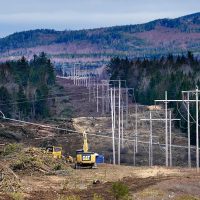
$1B Transmission Smack Down May Upend Northeast Renewables
November 12, 2021
CEEPR Executive Director Joshua Hodge is interviewed by E&E News on the potential policy ramifications of Maine voters opting to […]
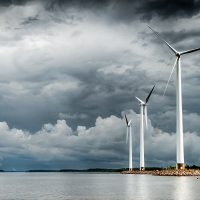
Electricity Price Distributions in Future Renewables-Dominant Power Grids and Policy Implications
November 5, 2021
Future electricity systems with constraints on carbon emissions will rely more on wind and solar generation, with zero marginal cost, […]

Advancing International Cooperation under the Paris Agreement: Issues and Options for Article 6
November 1, 2021
Article 6 of the Paris Agreement enables Parties to engage in voluntary cooperation as they implement their nationally determined contributions […]

Here’s What Every Degree of Heat Rise Could Do to the Global Economy
October 28, 2021
CEEPR Director Christopher Knittel is among a group of experts interviewed by CBS News for a piece on the effects […]

Technology Adoption and Early Network Infrastructure Provision in the Market for Electric Vehicles
October 28, 2021
Car use is associated with significant negative local and global external costs (e.g., from pollution), and many consider electrification as […]

How the Gulf Coast Can Lead the Energy Transition
September 24, 2021
On Thursday, September 23 at 4PM EDT, the Roosevelt Project held a webinar to release preliminary findings from the Gulf […]

Policies for Electrifying the Light-Duty Vehicle Fleet in the United States
September 10, 2021
The decarbonization of the light-duty vehicle (LDV) fleet in the United States is an important policy priority for the coming […]
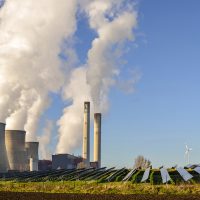
Intermittent versus Dispatchable Power Sources: An Integrated Competitive Assessment
September 8, 2021
The costs of replacing dispatchable power sources based on fossil fuels with intermittent renewable power sources remain controversial. The life-cycle […]

How to Reach 50 percent Zero-emission Vehicles
September 1, 2021
The transition to EVs is within grasp, if it is supported by the right mix of policies. Prof. Knittel and two co-authors propose policies that Congress can adopt to meet this 50% goal by 2030.

Rust? Trains? Why clean energy is turning to exotic ideas to fix its storage problem
August 6, 2021
An article on NBCnews looks at storage solutions, such as Form Energy’s iron-air battery technology, and asks CEEPR Director Christopher Knittel for his thoughts on grid-scale storage options.

Lack of Transatlantic Cooperation on Trade Threatens Global Climate Change Goals
August 2, 2021
CEEPR’s Deputy Director Michael Mehling and the Bipartisan Policy Center’s George David Banks discuss border carbon adjustment proposals from both the US and the EU in this piece on The Hill.
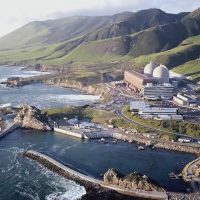
Water for a Warming Climate
July 14, 2021
California has a pressing need for additional sustainable fresh water supplies. This report explores the feasibility and economic benefits of co-locating a large seawater desalination plant at the Diablo Canyon Nuclear Power Plant to supply potable water to the state. This arrangement integrates the two facilities by sharing infrastructure, forming a water-power coproduction system.
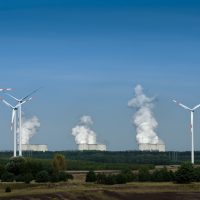
Challenges and Opportunities for Decarbonizing Power Systems in the US Midcontinent
July 8, 2021
In this paper, the authors assess options for rapid decarbonization of the power system with a focus on coal-reliant states across the midcontinent, where a diversity of entities share responsibility for maintaining a reliable and affordable supply of electricity.
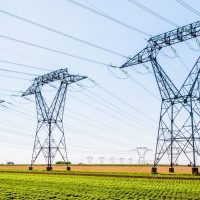
Facilitating Transmission Expansion to Support Efficient Decarbonization of the Electricity Sector
July 8, 2021
Many studies have found that achieving decarbonization targets in a cost-efficient manner will require significant investments in new transmission capacity. However, there are numerous barriers that go beyond “NIMBY†opposition. These barriers are identified and potential reforms to reducing them are discussed in this Working Paper.
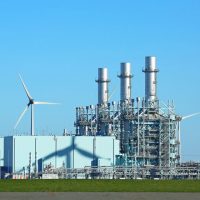
From Hierarchies to Markets and Partially Back Again in Electricity
June 21, 2021
Many electricity sectors are now pursuing deep decarbonization goals which will entail replacing dispatchable fossil generation primarily with intermittent renewable generation over the next 20-30 years. In this paper, Paul Joskow thinks broadly about the options for institutional change from a Williamsonian perspective, which provides a useful framework for examining institutional adaptation.

Taxes, Oil Prices And Why We’re All Quitting Our Jobs: Indicators Of The Week
June 15, 2021
In an episode of NPR’s Planet Money podcast series, Director Christopher Knittel discusses corporate taxes, the current state of oil prices, and employment trends.

Energy Conversion and Storage: The Value of Reversible Power-to-Gas Systems
June 1, 2021
Power-to-Gas technology has recently seen falling acquisition costs and lower conversion efficiency losses. In a new Working Paper, the authors examine the economic potential of reversible Power-to-Gas systems that can convert electricity to hydrogen or operate in the reverse direction to deliver electricity during times of high power prices.
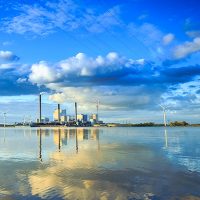
Spring 2021 Newsletter Released
June 1, 2021
The next issue of the CEEPR Newsletter is now online. Read about research work and other collected news items from the past few months here.
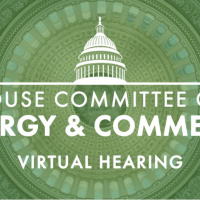
MIT CEEPR Research on Carbon Pricing Cited in Congressional Hearing
May 19, 2021
Congressman Scott H. Peters highlights CEEPR study on the benefits of including carbon pricing in a climate policy portfolio.

MIT Unveils a New Action Plan to Tackle the Climate Crisis
May 12, 2021
The plan includes a broad array of new initiatives and significant expansions of existing programs to bring the Institute’s expertise to bear on this critical global issue.

Are Complementary Policies Substitutes? Evidence from R&D Subsidies in the UK
May 10, 2021
Fostering innovation is one of the longest-standing and most pressing economic challenges. Governments globally provide subsidies comprising hundreds of billions of dollars each year. A paper by CEEPR faculty affiliate Jacquelyn Pless examines the interdependence of direct subsidies and tax incentives on private R&D.

On the Path to an Equitable Energy Transition, a New Collaborative Report Provides Insight on How to Get There
April 28, 2021
MIT researchers join scholars from across the United States in an analysis of 35 policy proposals to support an equitable energy transition for all communities.

CEEPR Research Referenced in Hydro-Quebec CEO’s Vision for Climate Action
April 12, 2021
Canada’s leading newspaper highlights CEEPR research that informed Hydro-Québec’s strategic realignment under CEO Sophie Brochu.
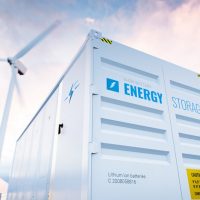
The Economics of Grid-Scale Energy Storage
April 8, 2021
The transition to a low-carbon electricity system is likely to require grid-scale energy storage to smooth the variability and intermittency of renewable energy. This paper investigates whether private incentives for operating and investing in grid-scale energy storage are optimal and the need for policies that complement investments in renewables with encouraging energy storage.
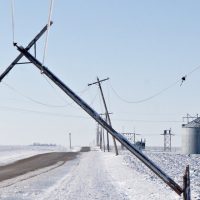
Resilient Decarbonization for the United States
March 19, 2021
The past decade has seen an unprecedented surge of climate change-driven extreme weather events that have wrought over $800 billion in damage and taken more than 5,200 lives across the United States — a trend that appears poised to intensify. At the same time, the need for a large-scale effort to decarbonize the U.S. electric power system has become clear, along with the growing climate risks and impacts that any such effort will face.

Electric Cars Are Coming. How Long Until They Rule the Road?
March 11, 2021
An article in The New York Times explores how long fleet turnover may take to switch from gas-powered cars to electric vehicles and interviews CEEPR Director Christopher Knittel for his thoughts…
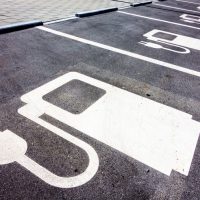
CEEPR Research Featured in Forbes
March 5, 2021
CEEPR’s oil-battery price calculator used to evaluate prospects for EV uptake in Forbes Magazine. Read the full article here.

Q&A: Clare Balboni on environmental economics
February 23, 2021
In this Q&A with MIT SHASS Communications, Professor Clare Balboni describes the burgeoning influence of economics in understanding climate, energy, and environmental issues.

Grid Impacts of Highway Electric Vehicle Charging
February 22, 2021
Highway fast-charging (HFC) stations for electric vehicles (EVs) are necessary to address range anxiety concerns and thus to support economy-wide decarbonization goals through the electrification of transportation. The characteristics of HFC electricity demand – their relative inflexibility, high power requirements, and spatial concentration – have the potential to adversely impact grid operations as HFC infrastructure expands.

Learning from Supply Shocks in the Energy Market
February 8, 2021
In this paper, Bora Ozaltun carries out three studies of the local and global impacts of supply shocks in energy markets, including looking at the relationship between power plants, energy prices and local pollution, analyzing fossil fuel trade networks, and developing a general equilibrium model to isolate trade impacts of the shale revolution.

MIT CEEPR Again Ranked Among Top Energy Policy Think Tanks in the World
February 5, 2021
For the ninth consecutive year, MIT CEEPR has been ranked among the top ten energy policy think tanks in the world, according to the annual “Global Go To Think Tank Index Report.”
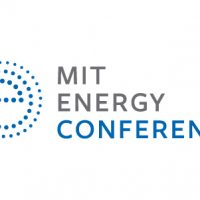
Registration Open for the 2021 MIT Energy Conference
February 5, 2021
Held from March 10-12, the 2021 MIT Energy Conference will feature high-profile keynote speakers and panels covering the fossil transition, trends in renewable energy development, and many more.

Energy Storage Investment and Operation in Efficient Electric Power Systems
January 26, 2021
Variable renewable energy (VRE) resources, mainly wind and solar, are becoming increasingly important sources of electricity in many regions. In a new CEEPR Working Paper, MIT’s Cristian Junge, Dharik Mallapragada, and Richard Schmalensee consider welfare-optimal investment in – and operation of – electric power systems.




